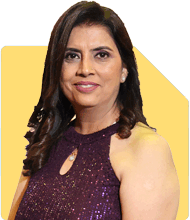Sushil Sukhwani | Answer |Ask -Follow
Study Abroad Expert - Answered on Apr 15, 2024

Please explain the procedure to practice in Australia after completing MD Psychiatry in India.
For further assistance, you may come in contact with us
You may like to see similar questions and answers below
Geeta Ratra | Answer |Ask -Follow
Visas, Study Abroad Expert - Answered on Feb 06, 2023
Sushil Sukhwani | Answer |Ask -Follow
Study Abroad Expert - Answered on May 11, 2024
Prof Suvasish Mukhopadhyay | Answer |Ask -Follow
Career Counsellor - Answered on Apr 06, 2025
Radheshyam Zanwar |6734 Answers |Ask -Follow
MHT-CET, IIT-JEE, NEET-UG Expert - Answered on Dec 06, 2025
Radheshyam Zanwar |6734 Answers |Ask -Follow
MHT-CET, IIT-JEE, NEET-UG Expert - Answered on Dec 06, 2025
Radheshyam Zanwar |6734 Answers |Ask -Follow
MHT-CET, IIT-JEE, NEET-UG Expert - Answered on Dec 06, 2025
Dr Dipankar Dutta |1837 Answers |Ask -Follow
Tech Careers and Skill Development Expert - Answered on Dec 05, 2025
Dr Shyam Jamalabad |108 Answers |Ask -Follow
Dentist - Answered on Dec 05, 2025
Dr Shyam Jamalabad |108 Answers |Ask -Follow
Dentist - Answered on Dec 05, 2025
Dr Shyam Jamalabad |108 Answers |Ask -Follow
Dentist - Answered on Dec 05, 2025
Dr Dipankar Dutta |1837 Answers |Ask -Follow
Tech Careers and Skill Development Expert - Answered on Dec 05, 2025
Ulhas Joshi |280 Answers |Ask -Follow
Mutual Fund Expert - Answered on Dec 05, 2025
Dr Dipankar Dutta |1837 Answers |Ask -Follow
Tech Careers and Skill Development Expert - Answered on Dec 04, 2025

























